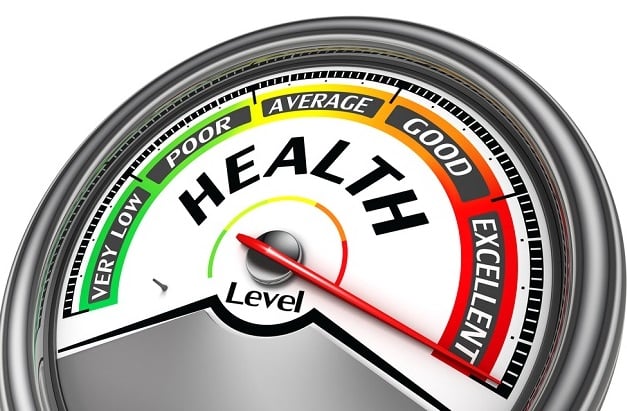 Since 1990, New York is the state that has improved its health ranking the most, moving from No. 40 to No. 11. (Photo: Shutterstock)
Since 1990, New York is the state that has improved its health ranking the most, moving from No. 40 to No. 11. (Photo: Shutterstock)
The latest America's Health Rankings is a good news/bad news proposition, with some dramatic long-term improvements balanced by recent troubling trends in areas such as suicide and drug use.
The latest report is the 30th addition of the annual analysis of health measures in the 50 states. This year's report finds the healthiest states are: (5) Utah, (4) Connecticut, (3) Hawaii, (4) Massachusetts, and (1) Vermont.
Related: In ranking of healthiest countries, U.S. comes in at 35
The state ranking lowest on health measurements were: (46) Oklahoma, (47) Alabama, (48) Arkansas, (49) Louisiana, and (50) Mississippi. The report also noted states that have made improvements, and said that since the rankings began in 1990, New York is the state that has improved its health ranking the most, moving from No. 40 to No. 11.
The study confirms that the quality of overall health in the U.S. often has a geographic component. "Despite many successes, our country has work to do to ensure every person, regardless of where you live, has an equal opportunity to live a long and healthy life," said Dr. Georges Benjamin, executive director, American Public Health Association, which partnered with the United Health Foundation on the report.
National findings for 2019
The report's findings for 2019 showed improvement on several national health measurements: smoking was down 6 percent, children living in poverty decreased 2 percent, and a 2 percent decrease in infant mortality over the past two years. The supply of mental health providers also saw improvement, with a 5 percent increase nationally.
However, several troubling trends were also found. Obesity and diabetes are on the rise; obesity is now at 30.9 percent, up 11 percent since 2012; and diabetes is now at 10.9 percent of the US population, up 4 percent from one year ago.
In addition, the rate of drug deaths increased 37 percent over a three-year period, and the suicide rate increased 4 percent nationally in the past year and has shown increases in a total of 30 states.
What 30 years of data shows
Long-term, the report shows some areas of considerable improvement, balanced by areas of concern. Smoking among adults has decreased 45 percent since 1990, with 16.1 percent of U.S. adults currently reporting that they smoke. This year's report also included adult usage of e-cigarettes for the first time.
In another improvement, infant mortality has decreased 43 percent since 1990, with declines in all 50 states.
However, the study found bad news in other areas:
- Obesity has increased 166 percent over the past 30 years, from 11.6 percent to 30.9 percent.
- Diabetes has reached the highest prevalence since 1996, the first year America's Health Rankings tracked it, increasing 148 percent among adults.
- The national suicide rate has increased 17 percent since 2012.
- Drug deaths have increased 104 percent since 2007.
"Over the past 30 years, the understanding and science of public health has changed dramatically," said Rhonda Randall, D.O., chief medical officer of UnitedHealth and advisor to America's Health Rankings. "Many health issues that were concerning in 1990 remain so today, and additional issues have arisen that require action now. America's Health Rankings will continue to provide evolving state and national snapshots of health to inform and drive action to build healthier communities."
Read more:
- Millennials face greater risk of obesity-related cancer than Boomers
- Key trends driving America's healthiest employers
- Are Americans really that unhealthy?
© 2025 ALM Global, LLC, All Rights Reserved. Request academic re-use from www.copyright.com. All other uses, submit a request to [email protected]. For more information visit Asset & Logo Licensing.







